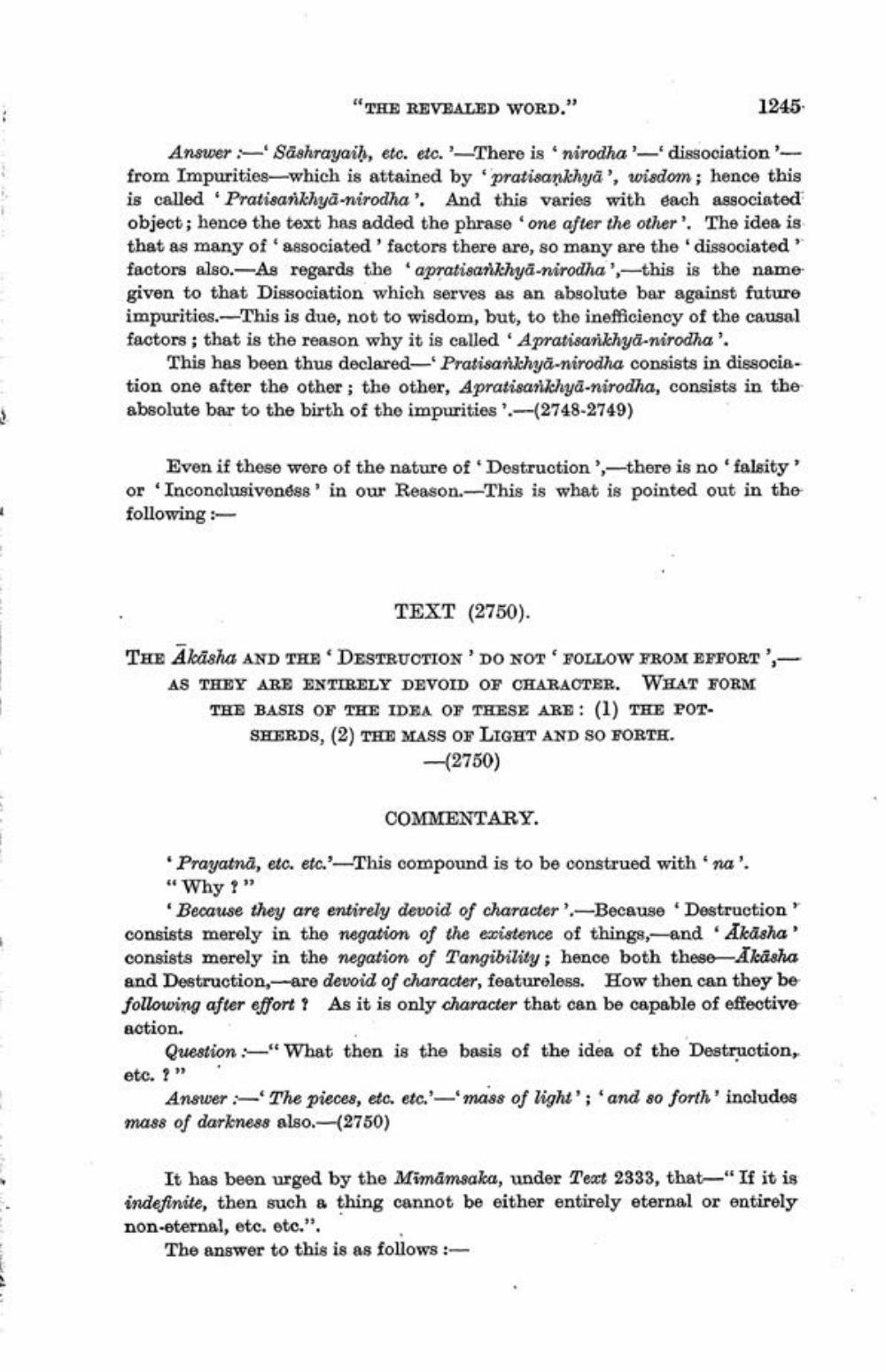________________
"THE REVEALED WORD.”
1245
Answer: - Sashrayaih, etc. etc. There is ' nirodha'-'dissociation - from Impurities—which is attained by "pratisankhya', wisdom; hence this is called 'Pratisankhyā-nirodha'. And this varies with each associated object; hence the text has added the phrase 'one after the other. The idea is that as many of 'associated ' factors there are so many are the dissociated factors also.-As regards the "apratisankhyā-nirodha', this is the name given to that Dissociation which serves as an absolute bar against future impurities.-- This is due, not to wisdom, but, to the inefficiency of the causal factors ; that is the reason why it is called 'Apratisarikhya-nirodha'.
This has been thus declared Pratisankhyā-nirodha consists in dissociation one after the other; the other, Apratisarikhyā-nirodha, consists in the absolute bar to the birth of the impurities'.--(2748-2749)
Even if these were of the nature of Destruction ',--there is no 'falsity' or 'Inconclusiveness' in our Reason.--This is what is pointed out in the following:
TEXT (2750).
THE Akasha AND THE DESTRUCTION 'DO NOT FOLLOW FROM EFFORT ',AS THEY ARE ENTIRELY DEVOID OF CHARACTER. WHAT FORM THE BASIS OF THE IDEA OF THESE ARE: (1) THE POTSHERDS, (2) THE MASS OF LIGHT AND SO FORTH.
-(2750)
COMMENTARY.
Prayatnā, etc. etc. -This compound is to be construed with 'na'. " Why ? "
"Because they are entirely devoid of character'. --Because 'Destruction consists merely in the negation of the existence of things, and Akasha' consists merely in the negation of Tangibility; hence both these-Akasha and Destruction,--are devoid of character, featureless. How then can they be following after effort ? As it is only character that can be capable of effective action.
Question:-“What then is the basis of the idea of the Destruction,
etc. ?»
Answer :- The pieces, etc. etc.'—'mass of light'; 'and so forth includes mass of darkness also.—(2750)
It has been urged by the Mimāmsaka, under Text 2333, that "If it is indefinite, then such a thing cannot be either entirely eternal or entirely non-eternal, etc. etc.".
The answer to this is as follows:




